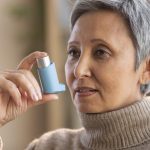What does it take to become a pilot in the vast skies above Australia, where the responsibilities are sky-high, and the safety of all on board is paramount?
Aviation is not just a profession but a commitment to excellence; you must meet rigorous medical requirements. Whether you’re aspiring to cruise the azure heavens or are already embarking on a Cadet Pilot Programme, understanding these essential medical requirements is essential.
Prepare to navigate the standards that ensure the safety of everyone in the sky and on the ground.
What are the Medical Requirements for Pilots in Australia?
In Australia, the Civil Aviation Safety Authority (CASA) establishes specific medical requirements for all pilots, regardless of their license type or the aircraft they operate. These essential criteria encompass:
- Visual Acuity: Pilots must maintain good vision, and those relying on glasses or contact lenses must meet prescribed standards for corrected vision.
- Hearing: Adequate hearing is crucial, and individuals using hearing aids must ensure they are properly fitted and calibrated.
- Cardiovascular Health: Pilots must be free from conditions that could compromise cardiovascular function, including high blood pressure or heart disease.
- Mental Health: Mental health conditions such as depression, anxiety, or substance abuse should not impair a pilot’s capabilities.
- Physical Health: Pilots must not have physical conditions that hinder their ability to operate an aircraft, such as musculoskeletal or neurological disorders.
When Flying Isn’t Possible
Certain conditions can disqualify individuals from flying. For instance, a history of heart disease or stroke may prevent a pilot from obtaining a CASA medical certificate. Similarly, pilots with a history of mental health issues might require additional information or clearance from a medical professional to continue flying. Additionally, uncontrolled diabetes is another condition prohibiting individuals from pursuing a pilot’s career. Other conditions include:
- Epilepsy: Individuals with epilepsy, especially those who experience seizures, are generally disqualified due to the unpredictable nature of the condition.
- Substance Abuse: Substance abuse problems, including alcohol or drug dependencies, can disqualify a pilot. Regular and random drug and alcohol testing are common in the aviation industry.
- Infectious Diseases: Certain infectious diseases, especially those that can impair cognitive function or pose risks to others (e.g., tuberculosis or HIV), may result in disqualification.
- Certain Medications: Some medications can be incompatible with flying due to potential side effects or interactions. Pilots must consult with aviation medical examiners regarding any prescribed medications.
- Vision in One Eye: Pilots generally need binocular vision, so having vision in only one eye can be disqualifying, although exceptions may apply in some cases.
It’s crucial to note that while these are common health and fitness considerations, individual circumstances can vary. Pilots are encouraged to consult with aviation medical examiners to assess their situations and determine eligibility. Ensuring safety in the skies remains the primary concern for aviation authorities like CASA.
Healthcare Tips for Aspiring Pilots
Taking care of your health during flight training in Melbourne is essential to ensure you meet the rigorous requirements of aviation authorities like CASA. Here are some key steps to maintain your health throughout your flight training journey:
- Regular Medical Check-ups
Schedule routine medical evaluations with an aviation medical examiner certified by CASA. These professionals specialise in assessing the health of aspiring pilots and can provide guidance tailored to your flight training in Melbourne.
- Maintain a Healthy Lifestyle
Flight training demands physical fitness. Focus on a balanced diet, regular exercise, and sufficient sleep to keep your body in top condition for flight training in Melbourne. Staying hydrated is also crucial, especially in the country’s diverse climates.
- Manage Stress
Flight training can be intense, so managing stress is vital. Incorporate stress-reduction techniques like meditation or yoga into your routine. Mental health is equally important for the Cadet Pilot Programme, so don’t hesitate to seek professional help.
- Stay Hygiene-conscious
In shared training environments, hygiene is critical. Maintain good hygiene practices to reduce the risk of infections, especially given the close quarters in which flight training often occurs.
- Avoid Smoking and Excessive Alcohol
Smoking can adversely affect your respiratory health, and excessive alcohol consumption can impair decision-making. These habits should be avoided, especially during flight training in Australia.
- Adhere to Medication Guidelines
If you take medications, ensure they are approved for use during flight training. CASA has specific guidelines regarding medications and flying, so consult your aviation medical examiner for guidance.
- Protect Your Hearing
Aircraft can generate significant noise levels. Protect your hearing with appropriate gear, especially during flight training in Australia, where exposure to aircraft noise is common.
- Eye Care
Vision is crucial for flying. Regularly check your vision and follow the guidance of your aviation medical examiner. If you need corrective lenses, ensure they meet CASA’s standards.
- Stay Informed and Committed
Keep informed about any changes in medical or fitness requirements for the Cadet Pilot Programme. Regulations may evolve, so staying up-to-date is vital.
Finally, maintain a strong commitment to your health throughout your flight training in Melbourne. Your well-being ensures your success and contributes to the overall safety of aviation in the country.

